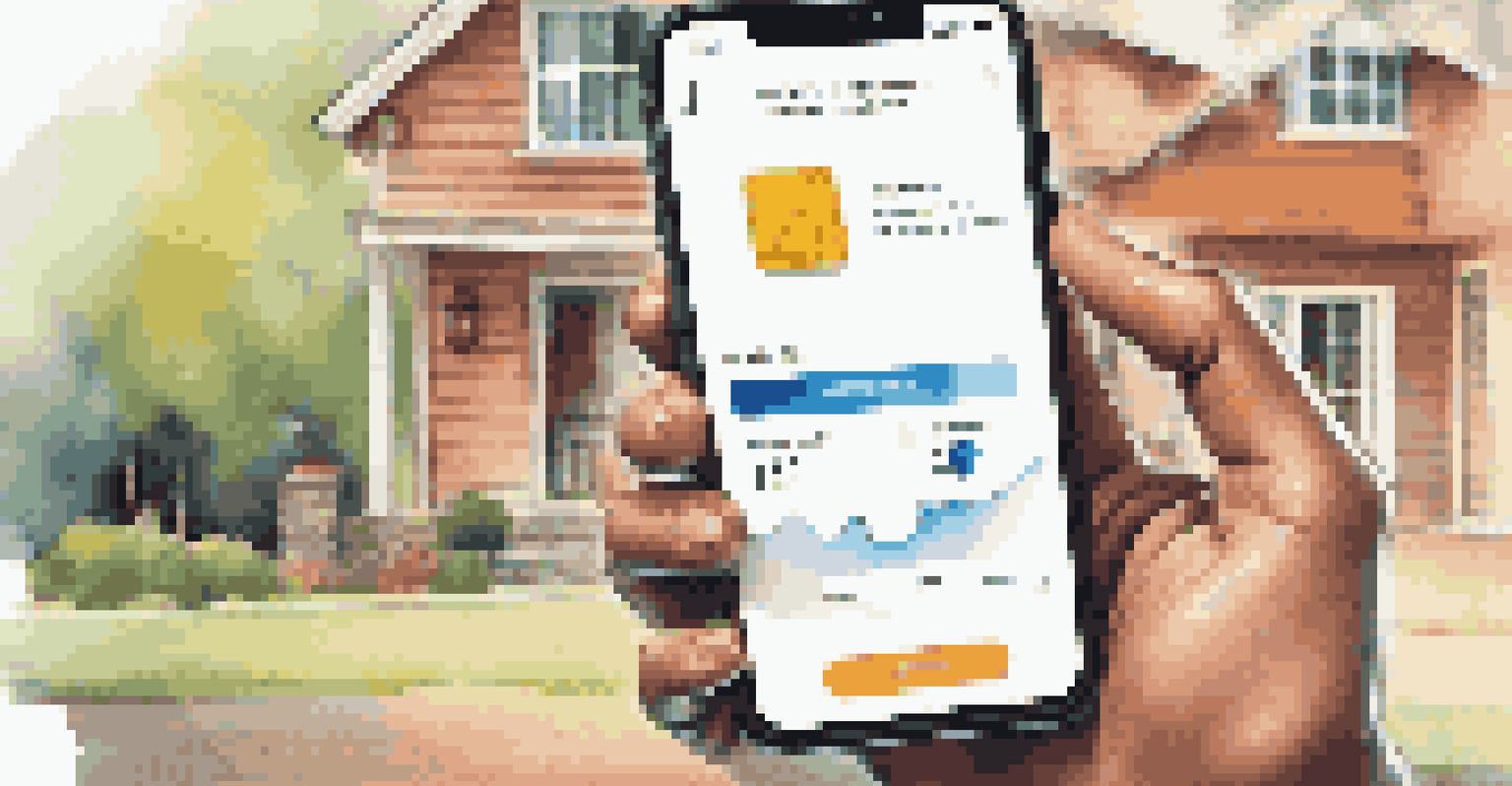The Potential of Blockchain for Digital Identity in Real Estate

Understanding Blockchain and Digital Identity
Blockchain is a decentralized digital ledger that securely records transactions across multiple computers. This technology ensures that once data is entered, it cannot be altered without consensus from the network. When applied to digital identity, blockchain can offer a more secure and efficient way to verify identities in real estate transactions.
Blockchain technology holds the promise of ensuring trust and transparency in real estate transactions, fundamentally changing the way we verify identities.
In the real estate sector, digital identity refers to the online representation of individuals or entities involved in property transactions. This includes buyers, sellers, and agents, all of whom must provide proof of identity. With blockchain, this process can be streamlined, reducing the time and resources spent on verifying identities through traditional means.
By utilizing blockchain for digital identity, stakeholders can create a single, immutable record of ownership and transaction history. This not only enhances security but also fosters trust among parties in a transaction, addressing concerns about fraud and misrepresentation.
The Current Challenges in Real Estate Transactions
Real estate transactions often involve extensive paperwork and multiple verification steps, making the process cumbersome and time-consuming. Issues such as identity theft and fraud can complicate matters further, leading to costly legal disputes. Furthermore, the lack of a standardized system for verifying identities adds another layer of complexity to transactions.

In many cases, buyers and sellers must rely on intermediaries like brokers and title companies to validate identities. This not only increases transaction costs but also extends the timeline for completing deals. The traditional methods of identity verification are often slow and can be fraught with human error, leading to potential pitfalls.
Blockchain Enhances Identity Security
Blockchain provides a secure, decentralized method for verifying identities, significantly reducing the risk of fraud in real estate transactions.
These challenges highlight the need for a more efficient solution in the real estate market. As technology evolves, there is an opportunity to rethink how identities are verified and transactions are conducted, paving the way for innovations like blockchain.
How Blockchain Can Enhance Identity Verification
Blockchain technology provides a decentralized platform where identities can be securely verified without the need for central authorities. Each participant in the real estate transaction can have a unique digital identity, which is linked to their real-world identity through cryptographic methods. This feature can significantly reduce the risk of identity fraud.
In the age of technology, the ability to verify identity securely and efficiently is paramount, especially in industries where trust is critical.
Moreover, blockchain allows for real-time updates to identity records, ensuring that all parties have access to the most current information. For instance, if a property owner changes their address or contact details, this can be updated instantly across the blockchain without the delays associated with traditional systems. This transparency fosters greater trust among all participants.
By automating identity verification through smart contracts—self-executing contracts with the terms of the agreement directly written into code—transactions can be processed more efficiently. This can lead to quicker closings and less need for intermediaries, ultimately saving time and money.
Improving Transparency in Real Estate Transactions
One of the most significant benefits of using blockchain for digital identity in real estate is the enhanced transparency it offers. Every transaction recorded on a blockchain is visible to all authorized parties, creating a clear audit trail from ownership to sale. This level of transparency can help reduce disputes and build trust between buyers and sellers.
For example, when a property is sold, all previous ownership records are readily available on the blockchain. This allows buyers to verify the legitimacy of the title and check for any existing liens or issues related to the property. Such transparency can empower buyers, making them feel more secure in their transactions.
Streamlined Transactions with Blockchain
Utilizing blockchain can significantly speed up the identity verification process, leading to faster and more cost-effective real estate deals.
Additionally, this openness can encourage more ethical practices within the industry, as all parties are held accountable for their roles. The result is a more trustworthy environment where everyone feels confident in the integrity of the information presented.
Reducing Costs and Time in Real Estate Deals
Utilizing blockchain for digital identity can lead to significant cost savings in real estate transactions. By streamlining the verification process and reducing the reliance on intermediaries, both buyers and sellers can save on fees associated with traditional methods. This can make real estate transactions more accessible to a broader audience.
Moreover, the time it takes to close a deal can be dramatically reduced. With blockchain, identity verification can happen almost instantaneously, eliminating the lengthy waiting periods that often characterize real estate transactions. This efficiency can be particularly beneficial in competitive markets where time is of the essence.
As the industry embraces this technology, we may see a shift in how real estate deals are structured, with more emphasis on speed and cost-effectiveness. The potential for expedited transactions could revolutionize the way properties are bought and sold.
Blockchain's Role in Enhancing Security
Security is a paramount concern in real estate, where large sums of money are at stake. Blockchain technology inherently offers a high level of security due to its decentralized nature and cryptographic methods. Each transaction is encrypted and linked to the previous one, making it nearly impossible for hackers to alter or tamper with the data.
Furthermore, the use of blockchain can help prevent common fraudulent activities, such as identity theft and document forgery. By creating a secure digital identity on the blockchain, individuals can confidently share their information without the fear of it being misused. This added layer of security can significantly mitigate risks associated with real estate transactions.
Increased Transparency in Transactions
Blockchain technology offers a transparent audit trail for real estate transactions, empowering buyers and fostering trust among parties.
As the real estate market continues to evolve, embracing blockchain technology could lead to a safer environment for all participants. Enhanced security measures can help instill confidence in new buyers, encouraging them to engage in transactions they might otherwise shy away from.
Future Prospects of Blockchain in Real Estate Identity
Looking ahead, the integration of blockchain technology in real estate is poised to reshape the industry. As more stakeholders recognize its potential, we can expect a gradual shift towards adopting decentralized identity verification systems. This transition could lead to widespread changes in how transactions are conducted and managed.
Innovations such as digital wallets for storing blockchain-based identities could become commonplace, allowing users to access their information securely and conveniently. Imagine being able to present your verified identity in a matter of seconds, whether you're buying a home or renting an apartment. This level of convenience could greatly enhance the overall user experience in real estate.

Additionally, as regulations evolve to accommodate these technologies, we may witness new standards emerging within the industry. The future of digital identity in real estate looks promising, with blockchain at the forefront of creating a more efficient, secure, and transparent landscape.